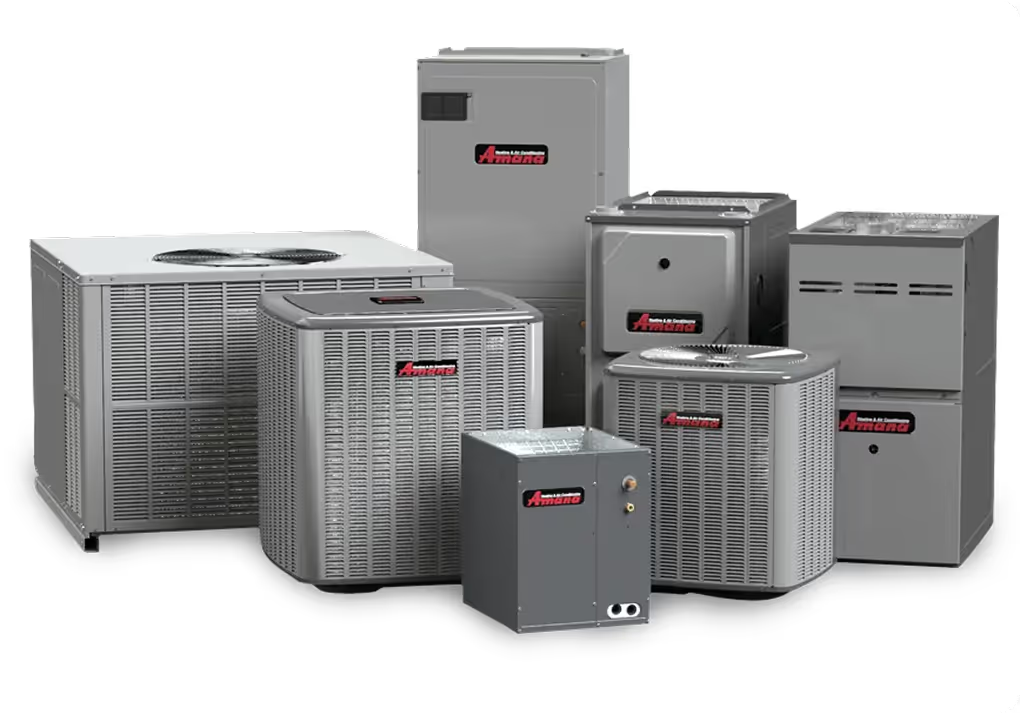Heating Replacement Services in Raleigh, NC
When the chill of a North Carolina winter sets in, a reliable and efficient heating system is not just a luxury—it's a necessity for comfort and well-being in your Raleigh home. An aging or underperforming heating unit can lead to inconsistent temperatures, soaring energy bills, and frequent breakdowns, disrupting your peace of mind. Investing in a new heating replacement is a significant decision that can dramatically improve your home's comfort, efficiency, and overall value. This page outlines the essential aspects of heating replacement, guiding Raleigh homeowners through the process of selecting and installing a system that meets their specific needs and ensures long-term warmth and energy savings.
.jpeg)
When to Consider Heating Replacement: Key Indicators
Recognizing the signs that your heating system needs to be replaced rather than repaired can save you time, money, and discomfort. For Raleigh residents, being aware of these indicators is crucial:
- System Age: Most furnaces have a lifespan of 10-15 years, while heat pumps typically last 15-20 years. If your unit is nearing or has surpassed these age markers, it's likely operating less efficiently and is more prone to failure, making replacement a more cost-effective choice than continuous repairs.
- Decreased Efficiency and Rising Energy Bills: As heating systems age, their components wear out, forcing them to work harder to maintain desired temperatures. This increased effort translates directly into higher energy consumption and noticeable spikes in your monthly utility bills, even if you haven't changed your usage habits.
- Frequent Repairs and Downtime: If your heating system requires multiple repairs each heating season, or if individual repairs are becoming increasingly expensive, the cumulative cost can quickly approach that of a new unit. Frequent breakdowns also mean prolonged periods without adequate heat, which is particularly inconvenient during cold snaps in Raleigh.
- Inconsistent Heating and Cold Spots: An inefficient or failing system often struggles to distribute heat evenly throughout your home, leading to certain rooms being noticeably colder than others. This inconsistency indicates a problem with the system's ability to maintain a uniform temperature.
- Unusual Noises or Odors: Strange sounds like grinding, squealing, banging, or persistent musty or burning odors emanating from your heating unit can signal serious mechanical issues, a failing motor, or even potential safety hazards.
- Outdated Technology: Modern heating systems boast significant advancements in energy efficiency, smart home integration, and comfort features. If your current system lacks these innovations, a replacement can offer improved performance, quieter operation, and greater control over your indoor climate.
Exploring Your Heating Equipment Options in Raleigh
Raleigh homeowners have several excellent options when considering a new heating system, each with distinct advantages suited to different preferences and home characteristics:
- Gas Furnaces: These systems heat air by burning natural gas, then distribute the warm air through your home's ductwork. Gas furnaces are renowned for their powerful, rapid heating capabilities, making them a popular choice for consistent warmth even during the coldest Raleigh winter days. They require a natural gas line and proper ventilation for safety.
- Heat Pumps: Heat pumps offer a versatile, all-in-one solution for both heating and cooling. In winter, they extract heat from the outdoor air (even in cold temperatures) and transfer it indoors. In summer, the process reverses to cool your home. Heat pumps are highly energy-efficient, environmentally friendly, and well-suited to Raleigh's mild winters and hot, humid summers, providing year-round comfort with a single system.
- High-Efficiency Systems: Regardless of whether you choose a furnace or a heat pump, modern high-efficiency models offer significant advancements. Look for higher AFUE (Annual Fuel Utilization Efficiency) ratings for furnaces and higher SEER (Seasonal Energy Efficiency Ratio) and HSPF (Heating Seasonal Performance Factor) ratings for heat pumps. These systems often feature variable-speed blowers and multi-stage heating, providing more consistent temperatures, quieter operation, and substantial long-term energy savings compared to standard models.
Making the Right Choice: Guidance for Raleigh Homeowners
Selecting the ideal heating system involves more than just picking a brand. A local expert can help you assess several factors crucial for optimal performance in your Raleigh home:
- Your Home's Specific Needs: Factors like square footage, insulation levels, window efficiency, ceiling height, and even the number of occupants all influence the size and type of heating system required.
- Energy Efficiency Goals: Determine your priorities regarding energy savings. While high-efficiency systems have a higher initial cost, their long-term operational savings often make them a wise investment.
- Budget Considerations: Different systems and efficiency levels come with varying price points. A comprehensive assessment will help you balance upfront costs with projected energy savings and comfort.
- Environmental Impact: If minimizing your carbon footprint is a priority, a high-efficiency heat pump may be the most suitable choice due to its lower energy consumption and dual heating/cooling capabilities.
- Personal Comfort Preferences: Consider if you prefer quick, intense heat (like from a furnace) or a more consistent, gentle warmth (often provided by a heat pump with variable-speed technology).
The Professional Heating Replacement Process: What to Expect
A professional heating replacement is a multi-step process designed to ensure your new system is installed correctly and operates at peak efficiency:
- System Sizing: This is perhaps the most critical step. Technicians perform a detailed load calculation (often referred to as a Manual J calculation) to accurately determine the heating requirements for your specific Raleigh home. An improperly sized unit—too large or too small—will lead to inefficiency, discomfort, and premature wear.
- Removal of Old System: Your existing heating unit will be safely and carefully disconnected and removed. Responsible disposal practices are followed to minimize environmental impact.
- Installation of New Unit: The new furnace or heat pump is meticulously positioned and connected. This includes inspecting and potentially modifying ductwork, ensuring proper electrical connections, installing refrigerant lines for heat pumps, or gas lines for furnaces, and setting up the thermostat.
- Testing and Calibration: Once installed, the entire system undergoes rigorous testing to verify proper functionality, airflow, temperature output, and safety controls. Calibration ensures the system operates at its optimal efficiency settings.
- Post-Installation Briefing: Technicians will walk you through the operation of your new system, explain its features, and provide essential maintenance tips to help you maximize its lifespan and efficiency.
Warranties and Financing Solutions for Raleigh Residents
Investing in a new heating system is a significant household expenditure, and understanding the available protections and payment options is important:
- Equipment Warranties: Most new heating units come with comprehensive manufacturer warranties covering parts, such as the compressor or heat exchanger, for several years. These warranties protect your investment against manufacturing defects.
- Labor Warranties: Reputable installers in Raleigh often provide a separate warranty on their workmanship, ensuring that the installation itself is covered for a specific period.
- Financing Options: To make heating replacement more accessible, various financing solutions are often available. These options can help spread the cost of a new system over time, fitting it more comfortably into your budget without delaying essential home comfort upgrades.
Optimizing Long-Term Comfort: Maintenance Planning
Once your new heating system is installed, regular maintenance is key to preserving its efficiency, extending its lifespan, and ensuring consistent comfort for years to come.
- Importance of Regular Maintenance: Just like a car, your heating system requires periodic tune-ups to operate reliably. Skipping maintenance can lead to reduced efficiency, increased energy consumption, more frequent breakdowns, and potentially voiding manufacturer warranties.
- Annual Tune-Ups: Schedule professional maintenance annually, ideally before the heating season begins. During these visits, technicians will inspect all components, clean essential parts, check electrical connections, lubricate moving parts, verify thermostat calibration, and ensure safety controls are functioning correctly.
- Filter Changes: Regularly changing or cleaning your air filters (typically every 1-3 months, depending on usage and household conditions) is a simple but critical step you can take to maintain airflow and system efficiency.
- Benefits: Proactive maintenance prevents costly breakdowns, maintains peak energy efficiency, extends the lifespan of your unit, and provides peace of mind that your Raleigh home will remain warm and comfortable throughout the winter.
Choosing the right heating replacement for your Raleigh home is a decision that impacts your comfort, energy bills, and peace of mind for years to come. By understanding your options, recognizing the signs of a failing system, and partnering with experienced local professionals, you can ensure a smooth transition to a more efficient and reliable heating solution.

Featured Manufacturer
Amana is known for delivering high-quality heating and cooling solutions backed by industry-leading warranties. With a focus on energy efficiency, durability, and American craftsmanship, Amana products are designed to keep your home comfortable year-round.









.png)
.png)
.png)
.png)
.png)
.png)
.png)
.png)
.png)
